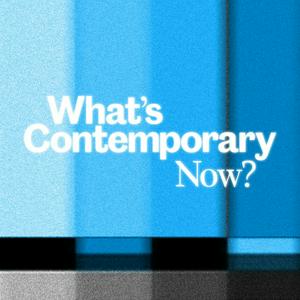The Editor as Curator with Sarah Harrelson on Building CULTURED
Sarah Harrelson, founder and editor-in-chief of CULTURED magazine, joins us to discuss what it means to engage the culture rather than simply cover it. From her early training as a competitive equestrian to her unexpected pivot from politics to publishing, Harrelson shares how discipline, curiosity, and an eye for the underdog have informed her editorial approach.
We talk about the magazine’s evolution—from its roots in print to its growing influence across art, fashion, and design—and why events were always central to the brand’s DNA. She reflects on building access without elitism, maintaining integrity in a metrics-driven world, and what feels truly contemporary now.
“People think I’m very social, but I’m actually most comfortable standing quietly in a room, observing. That’s how I learned—watching how people move, how power shifts, how conversations unfold. I think that shaped my sense of how to tell stories.” - Sarah Harrelson
Episode Highlights:
The Discipline of Beauty - Sarah’s early life as a competitive equestrian instilled a love of visual precision, self-discipline, and independence—elements that continue to shape her editorial eye.
From Politics to Publishing - With a college focus on the politics of poverty, Sarah originally envisioned a career in public service. That political awareness now informs her coverage of art, fashion, and the underdog stories that drive CULTURED.
Shyness as Superpower - Once a shy child, Sarah reveals how observing from the sidelines helped her understand power dynamics, refine her instincts, and eventually find her editorial voice.
Why She Built CULTURED Around Events - Events have been a core pillar of CULTURED since its inception—intimate, thoughtful gatherings that bring creative disciplines together and foster unexpected connections.
The Anti-Algorithmic Editorial Approach - Sarah is unapologetic about choosing stories based on meaning rather than metrics, spotlighting talent before the industry catches on—even if it means fewer clicks.
The Art of Cross-Pollination - Long before it became standard, Sarah was curating spaces where fashion designers, artists, architects, and tech figures could genuinely connect—not network, but engage.
Rejecting Editorial Rigidity - In response to legacy media’s narrow guidelines, Sarah launched CULTURED with a rebellious spirit—including two blank pages in the first issue to make a statement about creative freedom.
The Power of Staying Grounded - With three kids and a close-knit personal circle, Sarah prioritizes time, presence, and humility. “I don't like cliques,” she says. “I'm interested in being inclusive.”
Cultured VIP & Democratizing Access - Through the CULTURED VIP program, she’s opening doors to readers who don’t always have access—offering things like museum tours, studio visits, and meaningful cultural experiences.
What’s Contemporary Now? - For Sarah, contemporaneity isn’t about what’s trending—it’s about authenticity, curiosity, and kindness. A genuine lens, she says, is the most powerful tool any cultural voice can have.
Learn more about your ad choices. Visit megaphone.fm/adchoices
